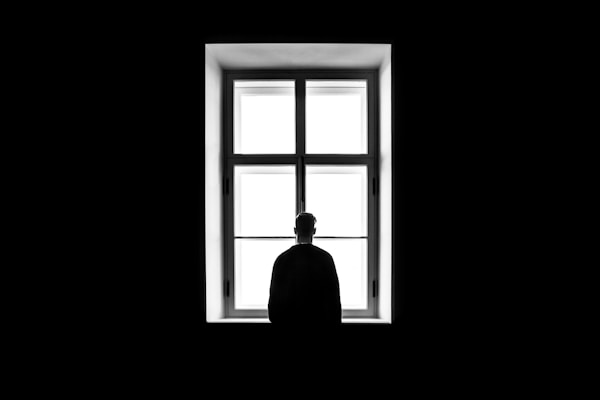Grief is a process that we all go through when we experience a loss. As you search “cremation near me” and organize funeral arrangements, your loved ones may not realize you’re going through the five stages of grief: denial, anger, bargaining, depression, and acceptance. Not everyone goes through these stages in the same order, and some people may not experience all of them. Keep reading to learn more about what to expect during each stage of grief.
Denial

The first stage of grief is denial, or when you refuse to believe the loss is real. You may feel like you are in an intense state of shock, and you may find that you cannot think about the person who died or what happened. You may also feel like you are in a fog or a dream. Some people may try to busy themselves with work or other activities to avoid the pain of the loss. You may also find that you withdraw from friends or family members. This stage is quick and fleeting for some people, but that doesn’t make it any easier to deal with.
The denial stage is when you need to be gentle with yourself and allow yourself to feel what you are feeling. It’s normal to feel a range of emotions during the first stage of grief, including shock, numbness, disbelief, sadness, anger, and guilt. All these feelings are normal, and you will not feel them simultaneously. Allow yourself to experience these feelings—don’t try to push them away. The most important thing you can do at this stage is to take care of yourself gently.
Anger

Anger is the third stage of grief and is often the most intense and challenging to manage. It can be hard to know how to express your anger healthily, especially when feeling so much pain. Anger can also be directed at anyone or anything associated with the death, such as friends, family members, and doctors. Some people may feel angry all the time, while others may only feel anger briefly. Anger can manifest in different ways. It can lead to verbal outbursts or physical aggression. People may also withdraw from others and bottle their anger. Remembering that anger is a normal reaction to a difficult situation is important.
Managing this stage is difficult due to the emotional power anger usually has. Understand that your anger is a normal reaction to your loss, and try not to bottle your anger or ignore it. It’s important to acknowledge and express your feelings. However, if you prefer to express your anger internally, try to find a creative outlet that lets you keep your mind busy. Additionally, expressing your feelings to a trusted friend or counselor can be very helpful. Try your best not to lash out at the people you love. It’s important to remember that your anger is not directed at them. And finally, seek professional help if you feel your anger is out of control or causing harm to yourself or others. Remember that the anger stage of grief is temporary and will eventually pass.
Bargaining
Bargaining is when people attempt to negotiate with their religious figure or with the universe in general to restore the loss. This may take the form of prayers, promises, or pledges. The person may also try to bargain with themselves or others to avoid or undo the loss. For example, someone may promise not to drink alcohol if they get their loved one back. This can be a difficult time, as you may feel like you are in limbo. Take things one step at a time and be patient. Some things to keep in mind during the bargaining stage:
- Give yourself time to mourn. Don’t try to rush things.
- Be realistic about what you can change.
- Don’t compare your situation to others.
- Don’t be afraid to ask for help.
- Be patient and take things one step at a time.
Depression
Depression is a natural reaction to grief, and it is entirely normal to feel depressed after the death of a loved one. However, if your depression interferes with your ability to function normally, it is important to seek help. There are many symptoms of depression, but some of the most common include feelings of sadness, emptiness, and hopelessness. You may also experience changes in appetite and weight, problems sleeping, fatigue, and feelings of worthlessness and guilt.
If you are experiencing any of these symptoms, it is important to seek help from a mental health professional. Many treatments are available for depression, and most people can find relief with the proper treatment. If you’re wondering what to expect during your first therapy session, it differs between providers. Most therapists try to understand your feelings and offer short-term advice. As you continue your visits, you’ll get deeper into the cause of your emotions, leading you to move on to the final stage.
Acceptance
The acceptance stage of grief is when you come to terms with the loss you have experienced. This doesn’t mean you’re necessarily happy with the experience, but that you’ve accepted it. You may feel like you are in a fog or a daze as you work through your feelings. But overall, you have a more positive outlook on your future, and you no longer linger on your grief in a way that interferes with your life. This stage often takes a while to achieve, so don’t feel frustrated if it takes months, or even years, to feel.
Everyone experiences grief differently and will go through the different stages of the grieving process at different speeds. There is no right or wrong way to grieve and no time frame for grieving. Grief can be a very isolating experience, but it is essential to remember that you are not alone, and some people can support you through your grieving process.









